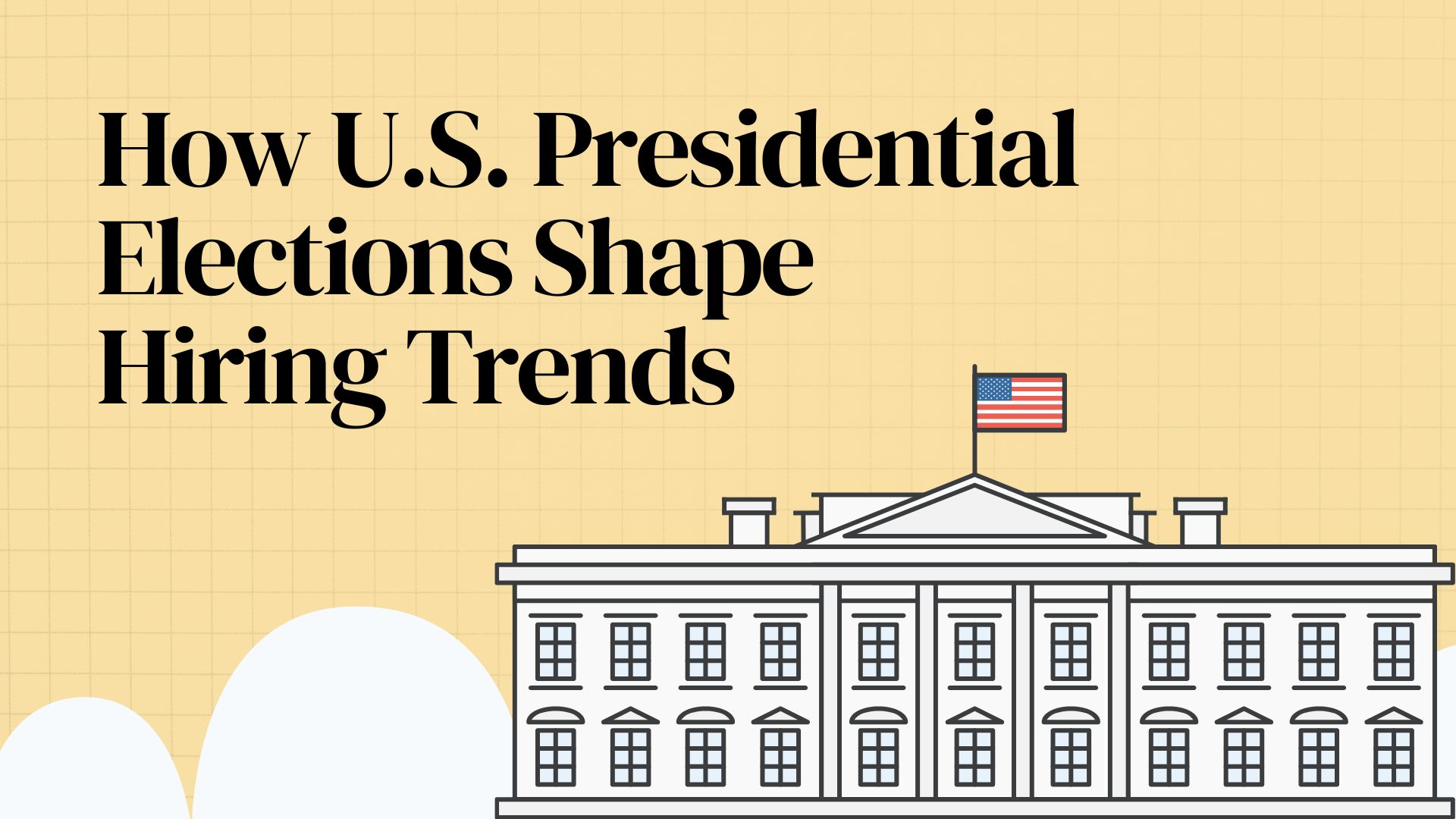Presidential elections in the U.S. have always had an impact on hiring trends, particularly because businesses and investors react to the uncertainty and potential policy shifts that come with changes in government leadership.
The effects of elections on hiring are influenced by factors such as economic policy, taxation, regulation, and overall business sentiment. In reflection to that, recruitment tends to slow down in the months leading up to election. Here is why.
Economic policy and hiring trends
As businesses often face uncertainty about future economic policies, they may delay hiring or capital investment until there’s more clarity on the outcome.
Employers may react differently depending on whether the winning candidate is perceived as pro-business or more likely to introduce regulations. Candidates, who advocate for lower taxes, deregulation, for example may trigger more aggressive hiring in sectors like finance, energy, and manufacturing.
Presidential candidates favoring more government intervention, on the other hand, risk leading to hesitation in hiring, especially in industries expecting more oversight or regulation.
Post-election changes
After a new president is elected, changes in tax policies or business regulations can affect the labor market. Lower corporate taxes can lead to increased hiring and investment. Changes in environmental or financial regulations can either boost or dampen hiring in specific sectors.
Another example is the focus on green energy the past few years, which led to job growth in renewable energy sectors, but this also affected hiring trends in oil and gas sectors.
Monetary policy and interest rates
The Federal Reserve, which operates independently of the election cycle, may adjust monetary policy (interest rates, etc.) in response to election outcomes if it believes that the policies of a new administration could affect inflation, employment, or economic growth. Higher interest rates, for example, could cool off hiring in industries dependent on capital (like housing or construction).
Sector-specific impact
Healthcare:
Presidential elections have significant impacts on the healthcare industry, especially if candidates propose changes to healthcare policy. Depending on the outcome, healthcare companies may ramp up hiring or pause it in anticipation of new laws or regulations.
Energy
Similarly, elections affect sectors like energy, where shifts in government policy toward fossil fuels or renewable energy can dramatically change hiring trends.
Defence and Infrastructure
Hiring in defence and infrastructure may increase under certain administrations that prioritize military spending or public works projects.
Hiring Caution
The uncertainty surrounding elections often makes companies more cautious about committing to long-term hiring plans. This “wait and see” approach means that hiring can slow down in the months leading up to the election as companies assess which candidate might win and what policies will follow.
The long-term effects largely depend on the policies enacted by the incoming administration. Historically, pro-business policies tend to stimulate hiring in industries that benefit from tax cuts and deregulation, while more regulatory or redistributive policies might slow hiring in some sectors but boost it in others (e.g., green energy, healthcare).
The effects are felt unevenly across industries, and post-election economic trends are often influenced by broader economic conditions like recessions, global crises, or technological change.
Thinking about expanding into the US market? Schedule a call with Lead and Gain.
